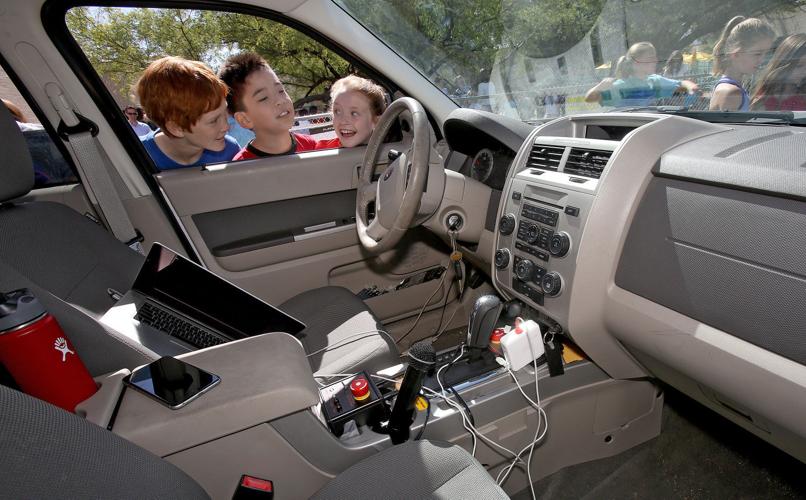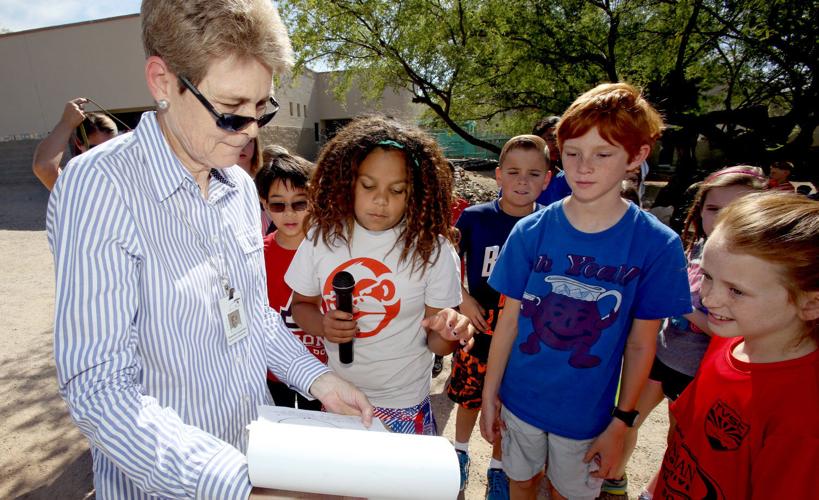An SUV rolled slowly across a field at Canyon View Elementary School, carefully navigating through orange cones.
But there was no one in the driver’s seat — the SUV was driving itself.
Technically, the vehicle was being driven by computers, which humans have programmed. The Ford Escape looked like a regular SUV from the outside, but it was equipped with sensors and computers that allowed it to operate without a driver.
And fourth-graders at Canyon View were behind the commands that made the car go straight and turn, using a simple programming language UA graduate student Matt Bunting developed.
“At first it was a little hard because it was confusing,” said Bryce Rosen, 10, who took part in the project. “And then it got easier.”
The University of Arizona’s electrical and computer engineering department partnered with Canyon View to teach students there about computer engineering.
It’s part of a broader education initiative by Jonathan Sprinkle, a UA associate professor of electrical and computer engineering, whose two children attend Canyon View, and his students. The project is three years in the making, and Canyon View is only the first of many schools that Sprinkle wants to work with.
“A self-driving car is something that is going to happen,” he said. Cars will eventually drive themselves to get their oil changed.
And as more and more things become controlled by computers rather than people, the question now is to figure out how to make computer-based systems “behave in a safe way.”
Sprinkle worked with Charlotte Ackerman, a teacher leader of science and engineering practices for the Catalina Foothills School District, to design a curriculum where children could learn about engineering and programming.
The students learned the new programming language, which Bunting, the graduate student, said is a visual one. And using a grid system with coordinates, the children were able to program the car to go where they wanted it to go.
“It’s kind of like Battleship,” said Bryce, the fourth-grader, referring to the warship strategy game that also uses a grid system.
The 10-year-old and his group programmed the car to move in a “6” shape on the grid. He eventually wants to attend the UA, get a business degree and open a gymnastics place.
And his business would be staffed by both people and robots. “In the future, we could have more advanced technology,” he said.






